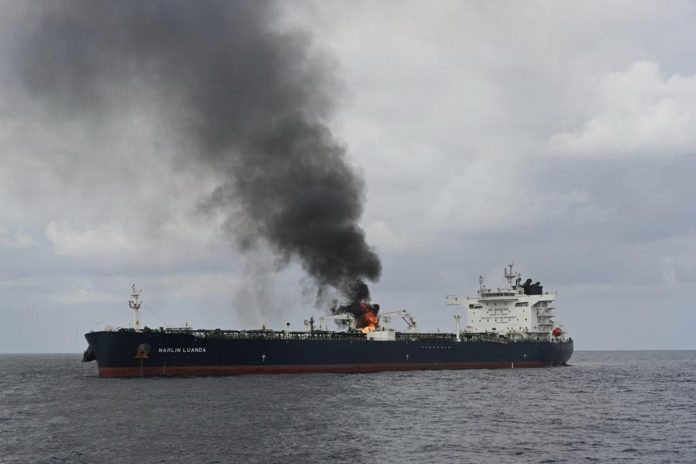
What Iran is up to in the Middle East, backing terrorists and provoking Israel and the United States, is hard to decipher, but it doesn’t bode well for the global energy industry.
Odessa oilman Kirk Edwards and Waco economist Ray Perryman say supporting Hamas in its war against Israel in Gaza, Hezbollah in Lebanon and the Houthis in their drone and missile attacks on shipping in the Red Sea and the Gulf of Aden from their power base in Yemen makes Iran the focal point of Israeli and American ire.
“I clearly can’t understand why Iran is trying to be such a bad actor in the Middle East right now,” Edwards said Wednesday. “It reminds me of the Saddam Hussein days in Iraq when he was doing the same sort of escapades that Iran is now orchestrating.
“Backing Hamas against Israel and now the Houthi rebels against the U.S. is not going to end well for Iran. The killing of the three U.S. servicemen by Iranian-made weapons will undoubtedly cause a major reprisal against Iran by the U.S.”
Edwards said going after Iran’s crude oil exports “in a big way would hurt them the quickest and would have long-lasting effects.
“Either Iran does not think the Biden administration will stand up to them or they are somehow trying to draw the U.S. even more into the Middle East conflicts,” he said. “It will be very interesting over the next week to see how the U.S. reacts.
“We should, but who knows if the administration will? That has not been their standard operating procedure so far. Either way, oil prices are going to be dramatically swayed if Iran’s export capabilities are damaged. And in a big way.”
Perryman said there are clear signs that much of the current turmoil in the Middle East is ultimately driven by or escalated by the actions of Iran.
“Tensions between the U.S. and Iran go back decades and, as an aside, the conflicts back in late 1970s were among the first matters that got me significantly involved in global economic policy,” Perryman said Wednesday. “Some of the recent actions seem to be designed to ratchet up the heat in the region.”
He said Middle Eastern energy markets are always affected by a major escalation of tensions.
“The region’s economy is almost entirely dependent on petroleum production and exports,” Perryman said. “Thus any type of disruption can’t help but affect energy markets. Moreover, producers in the region will inevitably take sides, shipping will be disrupted and other problems will arise which will work to disrupt the proper functioning of the global oil supply chain.”
He said domestic events in Iran almost certainly have some effect on the nation’s decisions to continue to provoke the U.S. and other nations, but the roots of the problems have been around for decades.
“Although cooler heads will likely ultimately prevail, if continued movement or perceived movement toward direct conflict persists, uncertainty will undoubtedly increase and energy markets will respond accordingly,” Perryman said. “The long-term investment climate in the region will also suffer.
“It’s difficult to assess what Iran hopes to achieve by provoking the U.S. military, but it is clear that one objective is to increase the risk associated with the U.S. role in the Middle East and in particular with regard to Israel and Gaza.
“Obviously if the conflict worsens, the energy markets will respond and potentially disrupt the economic balance of the region.”



